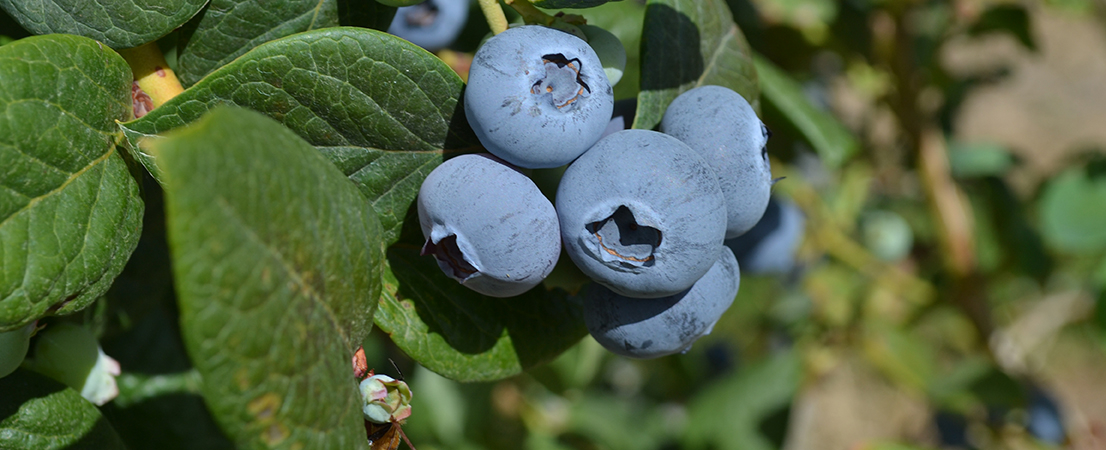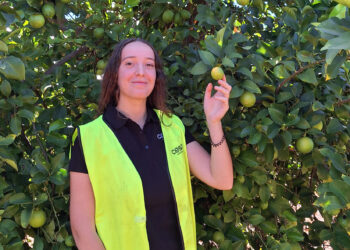Costa’s Variety Improvement Program is globally recognised, with Costa varieties licensed in regions including the Americas, Morocco, China, and South Africa.
Headquartered at Corindi on the Mid North Coast of New South Wales, Australia, the program develops one to two new varieties of blueberries of global commercial value each year. It utilises Costa’s extensive network of farms in mid latitude, low latitude, and low chill to mid-chill locations to select, evaluate and develop new varieties suitable for a range of global growing conditions, meeting both customer and customer requirements.
Using traditional plant breeding techniques, the team identifies and develops plant selections chosen for their performance across key areas of fruit quality, productivity, and agronomic outcomes.
Among the best known varieties to come through the Variety Improvement Program is Arana, now one of the most sought-after blueberry varieties around the world. Its superior size, flavour and quality drives a premium over standard market returns.
Key features
- Onsite nursery at Corindi facilitates plant propagation that feeds the program pipeline with material for evaluation, and houses facilities for plant breeding (making crosses).
- Largest blueberry germplasm (bank of genetic material) in Australia.
- Technical breeding expertise for plant selection and growing, combined with the resources and technical support of the broader Costa berry business in Australia, and Costa Berry International.
- Extensive network of blueberry farms in a variety of environments provides opportunity for on-farm trials and development of varieties suitable for different latitudes and climates.
- Capacity to trial 20,000 seedlings per year.
Breeding process
The Variety Improvement Program is based on traditional plant breeding techniques, which involves the selection of ‘parent’ plants, based on their desirable traits, and then making a cross via a process of hand pollination.
The seedlings are then planted in seedling blocks and grown to a size suitable for evaluation. Each year this results in up to 20,000 seedlings which are evaluated for a range of attributes. Of these seedlings, approximately 1-2% are selected to continue to the next stage, in which the seedlings are clonally propagated (using a plant cutting) to create more plants for testing.
After evaluation, further selections are made which are again propagated for larger trials at multiple sites.
The use of traditional breeding methods ensures the varieties can be selected to suit the environment where they will be grown and gives breeders the opportunity to adjust and respond to changing consumer/grower needs.
The adoption of substrate production systems for evaluation has enabled a fast-tracked timeline of seven years, from first identification of a selection to commercial launch of a new variety.
Expertise
The Variety Improvement Program is led by Jessica Scalzo, who has extensive experience as a plant breeder. She has led the program since joining Costa in 2013.
Dr Scalzo, who grew up in a small Italian town, completed a Master of Agricultural Science and Food Technology at the University of Ancona in Italy, before going on to complete her PhD in plant breeding. After working in New Zealand, Dr Scalzo came to Australia to work in the berry industry.
Sean Espinola – Assistant Breeder
Sean has a Bachelor of Science (Honours) in Biological Science from the University of Guielph, Canada. Prior to joining Costa in 2016, Sean worked in outreach science education and in a research capacity in an ecology laboratory.
Jayne Manrique – Assistant Breeder
Jayne graduated with a Master of Science in Plant Biotechnology major in molecular breeding from Wageningen University, Netherlands. Under the Wageningen University Research, she worked on identification and QTL mapping of Clavibacter resistant genes in tomato (Tomato stem canker). Prior to joining Costa, she was a senior science researcher in Philippine Nuclear Research Institute. She has 13 years’ experience working on mutation breeding on several crops (rice, mungbean, cashew, mangosteen, sugarcane and some ornamentals) using nuclear technology and molecular markers. She joined Costa in 2019.
Ebrahim Eshi – Technician
Ebrahim has a Bachelor of Sustainable Agriculture and Food Security, Bachelor of Agricultural Science (Plant breeding) and Master of Agriculture – Agronomy. He worked as a field technician and assistant researcher prior to joining Costa.
I started with Costa in 2013. This ‘farm’ is actually an institute of people. We have some of the world’s experts in blueberries here, and in areas such logistics and horticulture. That was one of the reasons I wanted to join this company, I wanted new challenges and I am still learning.
Jessica Scalzo





